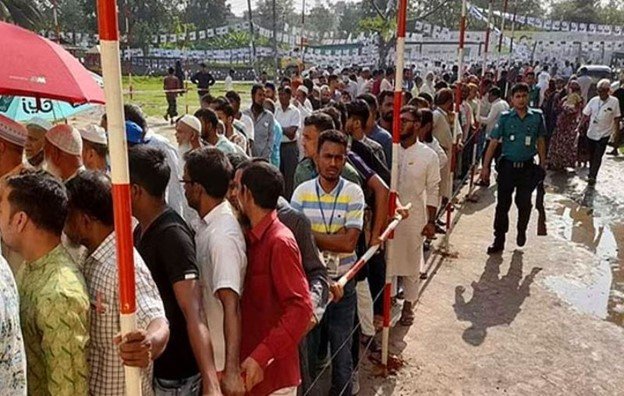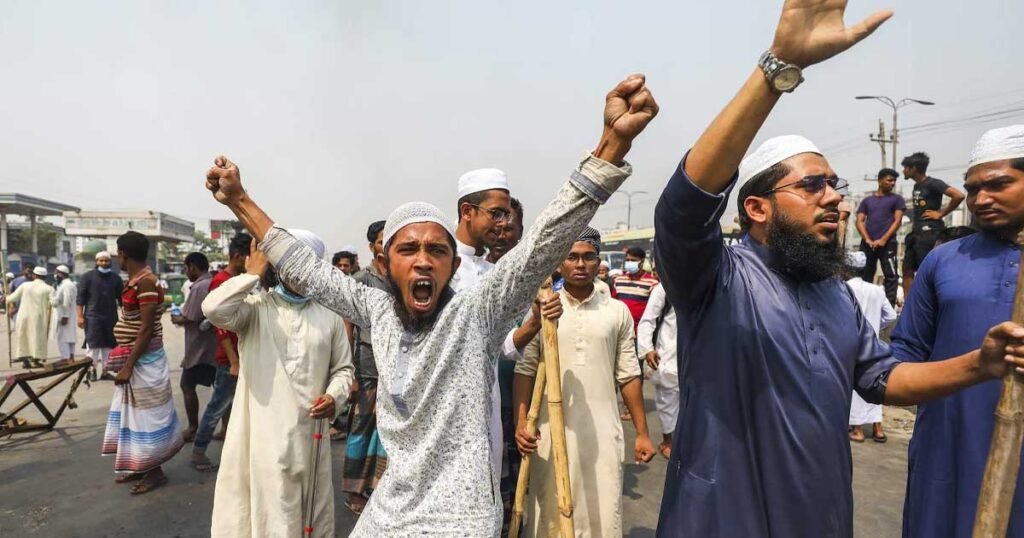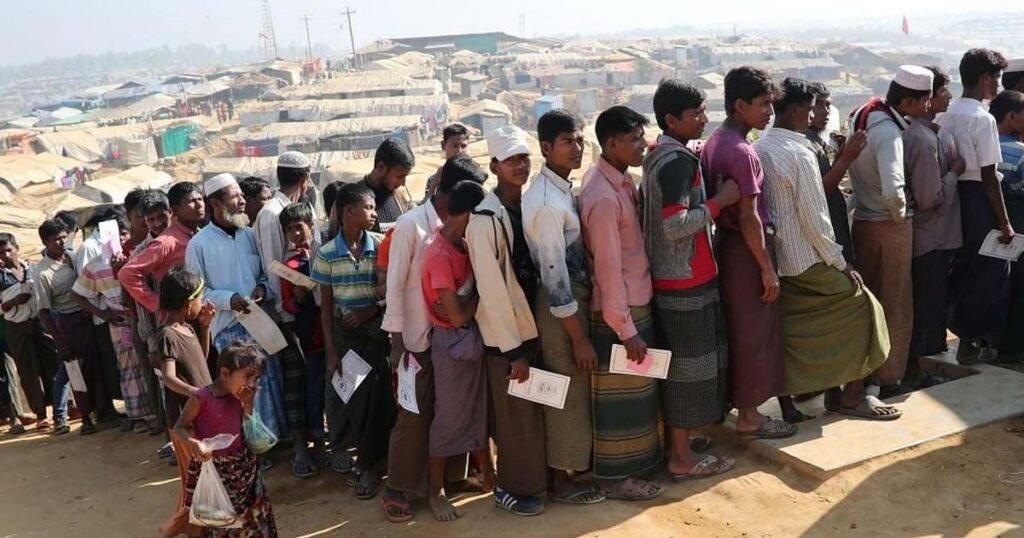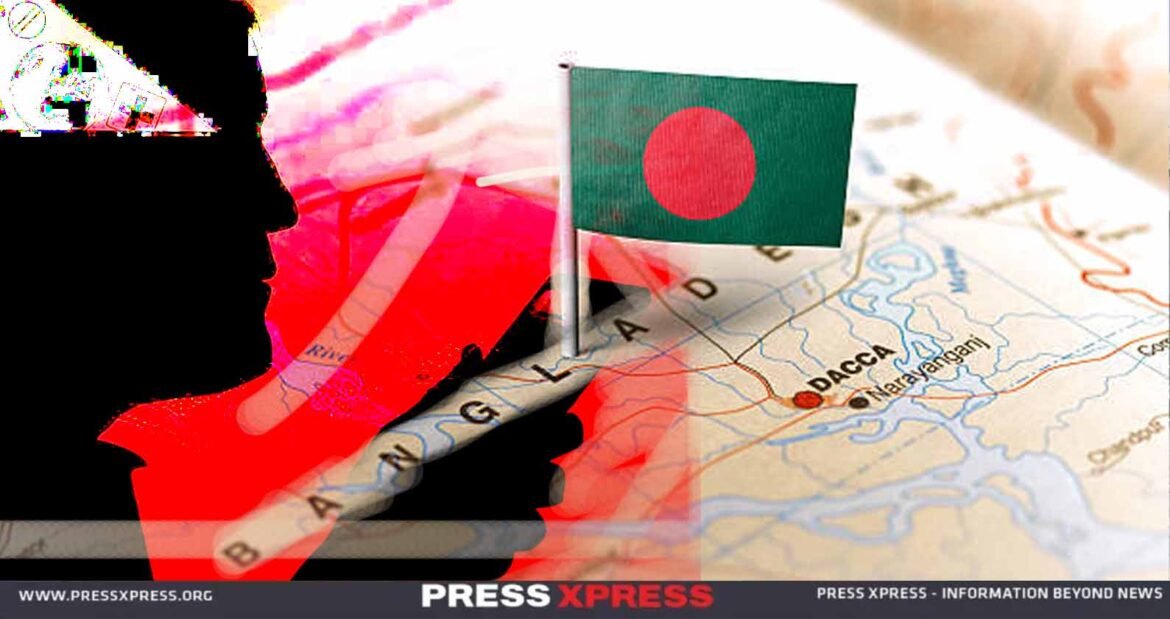Bangladesh is not under authoritarian rule but is governed by an administration facing numerous challenges, both internal and external
Bangladesh is currently grappling with a disinformation campaign spearheaded by dissatisfied individuals who oppose the nation’s commitment to holding local Bengali collaborators of the Pakistan army accountable for their role in the 1971 genocide during the Bangladesh War of Liberation. A recent article by Syed Badrul Ahsan on EUTODAY has shed light on this concerning development.
These disinformation efforts, in conjunction with others, are aimed at tarnishing Bangladesh’s reputation by alleging misconduct on the part of authorities in Dhaka. They paint a picture of Bangladesh being controlled by a small, oppressive dictatorship that seized power through military force rather than legitimate elections.
In recent months, this disinformation campaign has gained momentum, resulting in foreign governments and organizations exerting pressure on the Bangladeshi government to ensure a fair and transparent election scheduled for January of the following year. Some of the disinformation revolves around the general elections of 2014 and 2018 when the Awami League regained power through popular votes. It is acknowledged that these elections were not flawless and had their fair share of issues.
2014 Election Controversy
During the 2014 election, the political opposition chose not to participate in the process, leading to 153 uncontested seats for the Awami League. The remaining 147 seats were contested by the Awami League and smaller parties that did take part in the election. Nevertheless, false information has been disseminated, suggesting that the election was unfair.

Turning to the 2018 election, it is true that there were questions raised both domestically and internationally about the voting process. However, the notion that it was a midnight election with ballots being stuffed into boxes by Awami League supporters strains credulity. Despite allegations from the opposition, there has been no substantiated evidence to support their claims. Moreover, no legal complaints were filed with the judiciary challenging the election results, a standard practice in countries where voting fraud is suspected.
Historical Disinformation Instances
Disinformation against Bangladesh is not a new phenomenon. In 2013, when security forces quelled a mob in Dhaka organized by the Islamist outfit Hefazat-e-Islam, disinformation claimed that hundreds of Hefazat supporters had been killed and their bodies dumped in sewer pipes and drains by so-called human rights bodies known for their anti-government stance.

Going back a decade, when the Bangladesh government established special tribunals to prosecute the 1971 collaborators of the Pakistan army for their complicity in the genocide, there was significant outcry in the West, especially from Jamaat-e-Islami supporters. This disinformation suggested that the trials were unfair and did not meet international standards in prosecuting the accused.
Turning to another facet of the disinformation campaign, accusations that the Bangladeshi media lack the freedom to pursue independent reporting are patently false. A cursory review of newspaper op-eds and the tone of national political discussions on television talk shows reveals the fallacy of claims regarding media freedom within the country.
A Historical Perspective
Those engaged in the disinformation campaign about Bangladesh’s political realities have overlooked historical truths, such as the imperative to restore the nation’s authentic history. For twenty-six years, spanning from 1975 to 1996 and from 2001 to 2006, Bangladesh grappled with military and quasi-military rule. During this period, the nation’s history was subjected to forces intent on steering the country toward an illiberal and divisive path. Consequently, efforts have been concentrated on reestablishing history based on the principles of secular democracy.
Over the last fourteen years, the government has taken robust measures against Islamist militants, persistently pursuing these elements through security operations across the nation. These facts are either deliberately concealed or disregarded by those disseminating disinformation against Bangladesh.
Disappearances and Government Accountability Concerns
If the topic pertains to “missing persons,” there are obviously reasons for concern. When a citizen is taken into custody by a government agency and then disappears, it becomes the moral duty of the government to ensure the safe recovery and return of those individuals who have vanished.
We anticipate that the Bangladeshi government will take these disappearances seriously and act decisively to investigate and address the cases of those who have gone missing, while also acknowledging the heart-wrenching pleas of their families.
However, it is worth pondering whether international human rights organizations have considered conducting inquiries into the number of people who have disappeared either due to government actions, voluntarily, or have eventually returned home.
Inquiries concerning the individuals who remain missing are still ongoing within the country. An interesting point to note is the allegation that the security forces in Bangladesh receive orders from the Awami League government. Shouldn’t this be the norm? In most countries, security forces typically receive their orders from the government in power.

Rohingya Relocation Controversy
Another aspect of the disinformation campaign revolves around the relocation of segments of the Rohingya refugee population from overcrowded camps in Cox’s Bazar to Bhashan Char. Criticisms have arisen regarding the alleged insecurity, isolation, and vulnerability of these refugees to natural disasters. Nevertheless, both in Cox’s Bazar and Bhashan Char, Bangladesh authorities have diligently cared for over a million Rohingyas, adhering to humanitarian principles.
Bangladesh is not under authoritarian rule but is governed by an administration facing numerous challenges, both internal and external. There’s a growing sense within the country that this disinformation campaign, coupled with Western governments’ insistence on fair elections, is a carefully orchestrated attempt to remove Prime Minister Sheikh Hasina’s government from power.
And here’s the final point. No country with confidence, and for all the travails it goes through, will permit propaganda fashioned and publicised abroad to undermine its politics and its constitutional base.
In conclusion, no self-respecting nation, despite its trials and tribulations, will allow foreign-crafted propaganda to undermine its political landscape and constitutional foundations. Bangladesh, like any other nation, cherishes its sovereignty and dignity.


